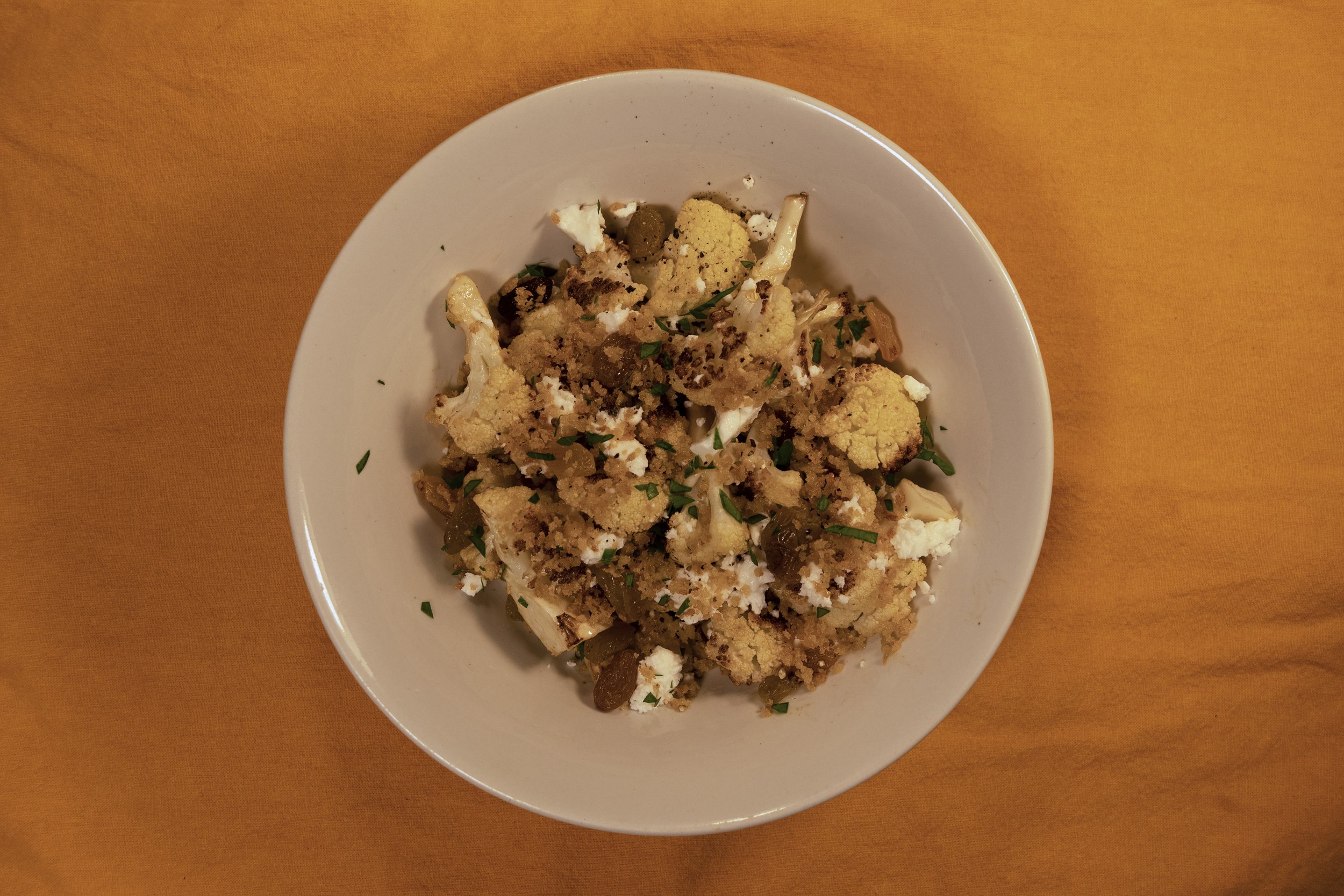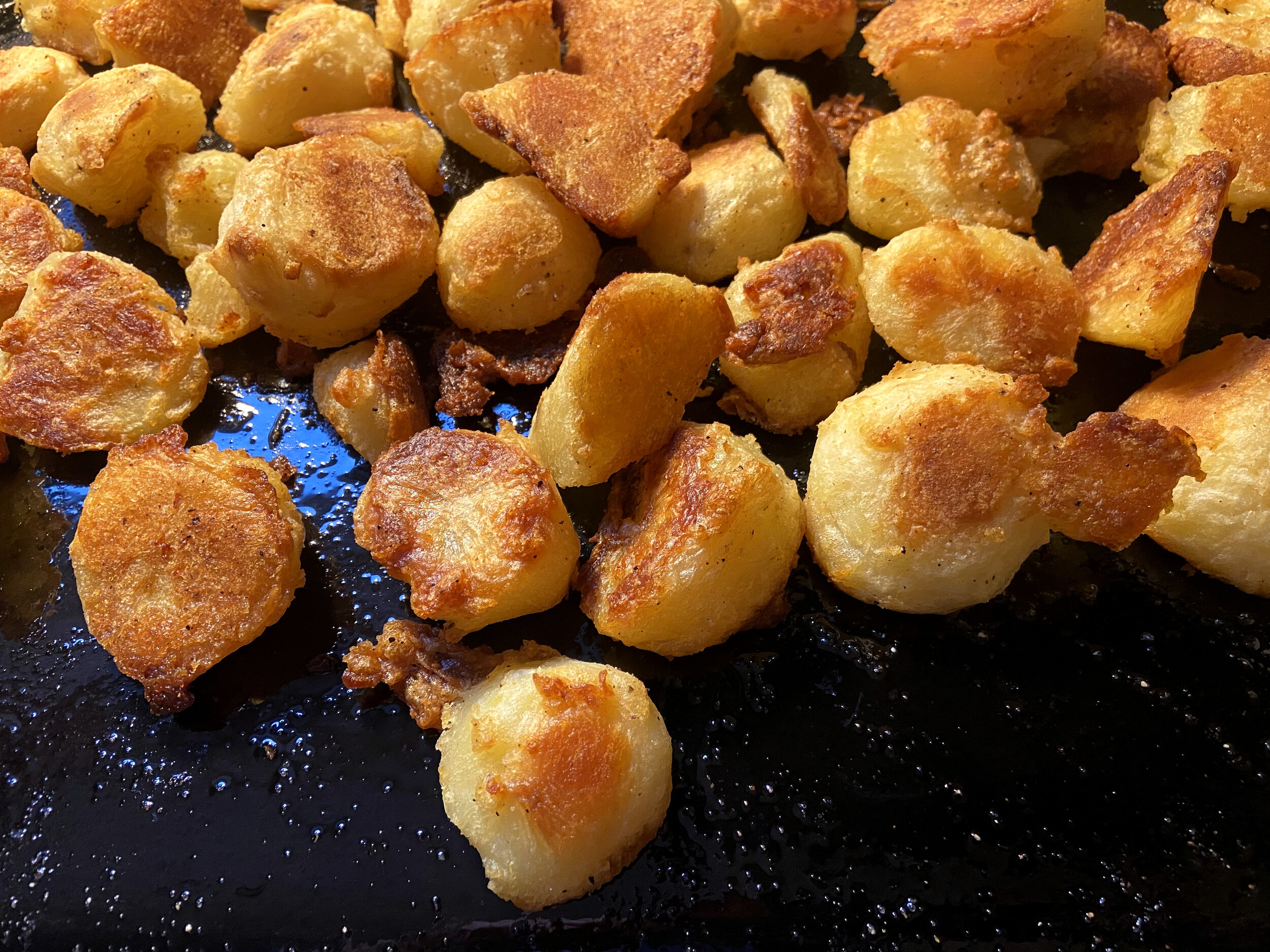What is Our American Cuisine?
Our American Cuisine is an online food and humor magazine about the meals we cook and the culture we consume every day.
Food unites us. As a spread of plates and platters draws us in, a meal serves as the starting point for shared stories, laughter, and friendship through the exchange of cultures and histories. For countless families, the story of food is intertwined with how we see ourselves, understand the past, and relate to the world. Our American Cuisine explores the meals we make and the culture we consume. We challenge readers to laugh, think about food differently, and connect to the complexities of American cuisine.
Our work complicates the question of what makes food “American.”
We consider the role of individual ingredients, memories, techniques, and the broader cultural landscape in defining American cuisine, while promoting an inclusive and nuanced look at our shared histories and potential futures. We engage with the issues that affect society today, such as climate change, industrial farming, inequality in access to healthy foods, and a fraught past. There is no one way to portray the storied foods of the United States, and different perspectives can lead to contrasting conclusions as to how we got here, where we are going, and what we should strive to become. We value diverse viewpoints and incorporate them in creative and original ways, including recipes, storytelling, fiction, and more. The combination of each component crafts narratives imbued with complexities and ambiguities, prompting readers to look back, observe, and reevaluate their surroundings. Intersecting the literary arts, culinary craft, and contemporary culture, we probe ways in which food shapes who we are as Americans and the stories we tell and imagine.
Each recipe is a dish that our family actually eats.
Using ingredients accessible to a wide audience, we aim for a diversity of tastes, techniques, and flavor combinations that draws upon traditional foodways, our heritage, and the imagination. Our sourcing from local grocers, H Mart, and affordable options acknowledges the globalized nature of the American food system and often highlights unfamiliar aspects of our culinary culture.
All of our recipes underscore an appreciation for putting time, effort, and care into feeding ourselves, so the technical demands can vary widely. However, we write clear and easy-to-follow instructions for any home cook. For a normal family without a prep cook, nor necessarily an ingrained sense of setting up an efficient workflow and organized mise en place, we provide a list of ingredients as you would find them at the market, chronological steps, suggested equipment, a tableware list, and helpful notes. These components and cues aim to build stronger technique and forward-thinking in the kitchen. We eschew a trend towards gimmicks, easy everything, and so-called hacks. We emphasize proper technique and presence throughout the entire cooking experience, from washing ingredients to setting the table for happy guests.
We hope that through cooking our food, reading our stories, and sharing them with friends and family, our readers will enjoy inventive home cooking, explore the culture that surrounds each meal, and find their own voice in our shared American cuisine.
Why do we matter?
We pair recipes with unexpected stories.
Food inspires us to engage with social issues, comment on contemporary culture, and complicate familiar narratives. Some of our stories evoke joy like a satisfying bite. Others develop like conversations at a dinner table, turning to serious topics and worthwhile debates. Storylines sometimes arc across multiple recipes with recurring characters, alluding to the interconnected nature of American cultural traditions and our open-ended future. Through reimagining what recipes and introductions can be, we create a new space to explore American cuisine and America.
Our work blends food and humor with purpose, highlighting these sources of pleasure beyond conscious control.
We can all taste a dish and appreciate it without knowing why, just like laughter rises from within at the slightest provocation. While these instincts are inherent, we quickly leap to find deeper meanings and reflect thoughtfully on American life.
This combination of the literary and culinary arts falls within the American food writing tradition that authors like MFK Fisher and Anthony Bourdain exemplified.
Catering to real people with food and stories that matter, we push against the increasingly prevalent pursuit of search engine optimization to elevate all elements of our craft.
Intertwining food with the literary arts, social commentary, and the responsibility that we all have to each other as fellow citizens, we further promote an open-mindedness about the diversity of thought and modes of expression that the culinary field has to offer.
What can we accomplish?
Our work seeks to foster debate through recipes, storytelling, and humor.
We question the importance of traditional dishes in defining American food, the role of innovation versus the harm of cultural appropriation in a globalized food system, and the differences and overlaps between restaurant food and home cooking. We also consider how to promote respect and diversity in conversations surrounding new foods. While some might not agree with our perspectives and find our approach unfamiliar, the key lies in prompting discussions among home cooks and the wider public about American cuisine.
Our innovative style of writing aims to challenge the effects of search engine optimization on digital food media.
Inhuman search engines attempt to feed people what they supposedly want, affecting the language that food writers use, the styles they follow, and the dishes they develop. This impacts American cuisine and how millions of people engage with food culture by homogenizing the words, images, and recipes that they see. Our work challenges other culinary professionals to rethink the demands on digital food media today and share new ways to tell stories through and about food, highlighting complexities and pushing boundaries on the form.
As social media and the rest of the real world provide countless places to focus our attention, creativity in the kitchen combined with imaginative storytelling ensures that the culinary field remains relevant and engaging in the years to come.
Can you provide some examples of how to interpret your work?
-

Crispy Lemongrass Pork Over Rice with Pickled Radish and Vietnamese Balm
Crispy Lemongrass Pork is a simple dish that depends on the quality of the pork. The introduction centers on respecting the animals that nourish us. We draw upon a diversity of thought, including Buddhist teachings and animal fables, to craft a moral tale about the American food system. The recipe chops rather than grinds meat to further physically engage the cook with the pig. In the picture, two white dots at the edge of the plate suggest ears, alluding to the life that went into the dish. -

“New World” Thanksgiving Stuffing with Button Mushrooms, Red Onion, and Crispy Chorizo
“New World” Thanksgiving Stuffing combines a familiar dish with an Old World ingredient, commenting on the adaptation and evolution of the American culinary tradition as different peoples have joined the conversation. Elementary school memories of writing imagined letters inspire a story that defamiliarizes an American holiday, looking at the past and present from a humorous and irreverent perspective. The photo alludes to the Spanish conquistadors’ search for gold, suggesting culinary inventions as the true treasures of America. -

Roasted Cauliflower with Golden Raisins, Breadcrumbs, and Feta
Roasted Cauliflower nods to my parents’ Sicilian and Japanese pasts while emphasizing the complicated relationship between Old World nostalgia and contemporary American life. Sicilians often used breadcrumbs as a substitute for cheese. We combine Japanese panko and feta to represent variety and abundance in America. However, as our introduction shows, American capitalism can be blind to the humble beauty of simple food, along with the labor of cooks and servers. Our picture’s warm colors form a nostalgic backdrop to golden and delicious cauliflower.

Who are we?
Seth Paternostro
Cofounder
Seth spends most of each day in the elephantine chair he calls “his office.” When an idea strikes, he wakes up, walks downstairs to the kitchen, and stands in the front of the stove. Long before managing the daily operations of Our American Cuisine, Seth began his culinary education like countless others, cooking along to Julia Child’s classic The French Chef at the age of twelve.
In the high school years, Math Team, Orchestra, and Classwork dominated. A career in the food world was off the table. Seth made his way to New Jersey for college and majored in East Asian Studies. With summers spent studying Mandarin in Beijing and interning at the Natural Resources Defense Council, Seth seemed set on changing the world through Paperwork.
But digging through the stacks at Firestone Library, Seth found himself researching a topic that few in academia have explored: food. His senior thesis, “Tasting Communism: Comrade Cookery and the Politics of Eating in Mao’s China, 1949–1965,” promptly appeared.
Before graduating summa cum laude from Princeton University, Seth returned to home and hearth as the Covid-19 pandemic surged. While quarantining with his (wacky) family, Seth’s conceptual interrogation of Chinese foodways morphed into a course on culinary technique as taught by the Culinary Institute of America, Jacques Pépin, J. Kenji López-Alt, and Samin Nosrat, in book-form. After a year of training, he was ready for the Internet.
Seth founded Our American Cuisine in 2021 alongside Alex, his brother. The website draws inspiration from the myriad cultural and culinary traditions that make up our nation. In addition to the culinary arts, Seth’s creative work encompasses writing, comedy, and digital media production.
Alex Paternostro
Cofounder
Alex is a writer. His uniform is a grey suit, black jeans, and a tee-shirt (variable). He has limited experience in SaaS marketing, clinical research, and money management. Alex enjoys humor, and his senior thesis for Princeton University’s Department of English, “Death in Broom (1921-1924): Suicide and the Escape of Art after the Great War,” won a prize. He also takes photos of food.



